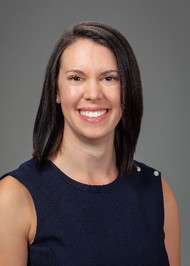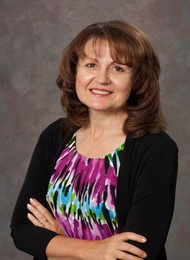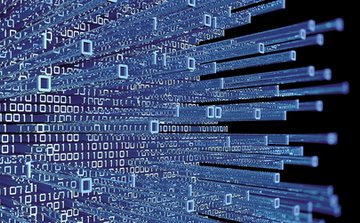Health Informatics Alumni
Former Student Theses
UC Davis students, faculty and staff logged into their UC Davis account may view alumni theses via a search at the following link or at the Library Services resource page: http://search.proquest.com/dissertations/advanced
If the link does not work, you may view UC Davis theses via your institutional subscription or a personal subscription to: http://www.proquest.com
Alumni Spotlights
Melissa Jost
 Melissa Jost graduated from the Health Informatics program in 2015. Prior to entering the program Jost served as a project analyst on enterprise Epic electronic health record (EHR) implementation projects for the UC Davis Health System (UCDHS). After seven years of installing new EHR technology, the need to optimize the technology to improve user experience became apparent. Today Jost works for UC Davis Health as manager of the new innovative Practice Experience Program (PEP) which has received national attention from Epic. The PEP formed in February 2018 and works to help physicians at UC Davis Health better manage the EHR system as an important part of their workflow, avoid burnout and improve patient care. PEP utilizes EHR data to individualize training to each physician, as well as, optimizing EHR functionality to best meet the needs of each clinic specialty. The goals of the program are to increase physician and patient satisfaction and to reduce the amount of time that physicians spend interacting with the EHR. The ultimate goal of this project is to ensure every physician has the opportunity to receive ongoing specialized EHR training. In 2020 Jost along with her team will continue to expand the Practice Experience Program into the inpatient care units at UC Davis Health.
Melissa Jost graduated from the Health Informatics program in 2015. Prior to entering the program Jost served as a project analyst on enterprise Epic electronic health record (EHR) implementation projects for the UC Davis Health System (UCDHS). After seven years of installing new EHR technology, the need to optimize the technology to improve user experience became apparent. Today Jost works for UC Davis Health as manager of the new innovative Practice Experience Program (PEP) which has received national attention from Epic. The PEP formed in February 2018 and works to help physicians at UC Davis Health better manage the EHR system as an important part of their workflow, avoid burnout and improve patient care. PEP utilizes EHR data to individualize training to each physician, as well as, optimizing EHR functionality to best meet the needs of each clinic specialty. The goals of the program are to increase physician and patient satisfaction and to reduce the amount of time that physicians spend interacting with the EHR. The ultimate goal of this project is to ensure every physician has the opportunity to receive ongoing specialized EHR training. In 2020 Jost along with her team will continue to expand the Practice Experience Program into the inpatient care units at UC Davis Health.
Brian Paciotti
Brian Paciotti graduated from the Health Informatics program in 2011. Since graduating, Brian worked for the Clinical and Translational Science Center (CTSC) at UC Davis, and recently shifted roles to the Quality and Safety Department in December of 2017. At the Quality and Safety Department, Brian’s primary responsibility is to provide analytical and programming support for a large quality program called PRIME that is managed by the California Department of Healthcare Services. In this role, Brian works with clinicians and other informatics professionals to transform complex performance measure requirements into algorithms that exact and process clinical data from the EMR. In addition, he works to create actionable business intelligence dashboards to help clinical and administrative leaders prioritize opportunities to drive workflow changes that will in turn lead to an improvement in the quality of care.
Stephanie Soares
 Stephanie Soares graduated from the Health Informatics program in 2013. However, she had a long career at UC Davis prior to entering the program and just recently retired on July 1, 2019. Stephanie began her employment on the Davis campus in 1979 and realized early that working with researchers and data was something she found extremely interesting. After a few position changes over the years, she settled in the Department of Urology Research Program performing basic science data management, human clinical trials and grant administration. However, her primary interest lay in the field of human biobanking and medical data management. While at UCD, she designed, built and managed the Urology Department Biobank, the Cancer Center Biorepository and the Athena Breast Health Network biobank. Through this biobanking interest, a faculty member introduced her to the idea of a Masters in Health Informatics and how it could impact her career. She wrote her thesis on a process of integrating EMR within institutional biobanking infrastructures. With the opportunity created by Dr. Nick Anderson joining the UCD faculty, and the Dean’s Office showing interest in enhancing biobanking at UCD, she was fortunate enough to pilot test her thesis process in the clinical setting at UCD. For the past 4 years, Stephanie has been located in the Clinical and Translational Science Center (CTSC) working with Dr. Anderson to build biobanking infrastructure. Three of their primary infrastructure projects are the Universal Biospecimen Consent that allows access to thousands of clinical remnant samples, a Virtual Biospecimen Discovery (VBD) website that allows researchers to identify potential specimens for their studies, and introducing a commercial biobanking software (Freezerworks) that’s supported by the University and can be utilized by any biobank or laboratory located throughout campus and UCDMC. She is extremely grateful for the Health Informatics program and the opportunity it provided in allowing implementation of her thesis project as well as the opportunity to publish the data in peer-reviewed journals.
Stephanie Soares graduated from the Health Informatics program in 2013. However, she had a long career at UC Davis prior to entering the program and just recently retired on July 1, 2019. Stephanie began her employment on the Davis campus in 1979 and realized early that working with researchers and data was something she found extremely interesting. After a few position changes over the years, she settled in the Department of Urology Research Program performing basic science data management, human clinical trials and grant administration. However, her primary interest lay in the field of human biobanking and medical data management. While at UCD, she designed, built and managed the Urology Department Biobank, the Cancer Center Biorepository and the Athena Breast Health Network biobank. Through this biobanking interest, a faculty member introduced her to the idea of a Masters in Health Informatics and how it could impact her career. She wrote her thesis on a process of integrating EMR within institutional biobanking infrastructures. With the opportunity created by Dr. Nick Anderson joining the UCD faculty, and the Dean’s Office showing interest in enhancing biobanking at UCD, she was fortunate enough to pilot test her thesis process in the clinical setting at UCD. For the past 4 years, Stephanie has been located in the Clinical and Translational Science Center (CTSC) working with Dr. Anderson to build biobanking infrastructure. Three of their primary infrastructure projects are the Universal Biospecimen Consent that allows access to thousands of clinical remnant samples, a Virtual Biospecimen Discovery (VBD) website that allows researchers to identify potential specimens for their studies, and introducing a commercial biobanking software (Freezerworks) that’s supported by the University and can be utilized by any biobank or laboratory located throughout campus and UCDMC. She is extremely grateful for the Health Informatics program and the opportunity it provided in allowing implementation of her thesis project as well as the opportunity to publish the data in peer-reviewed journals.



